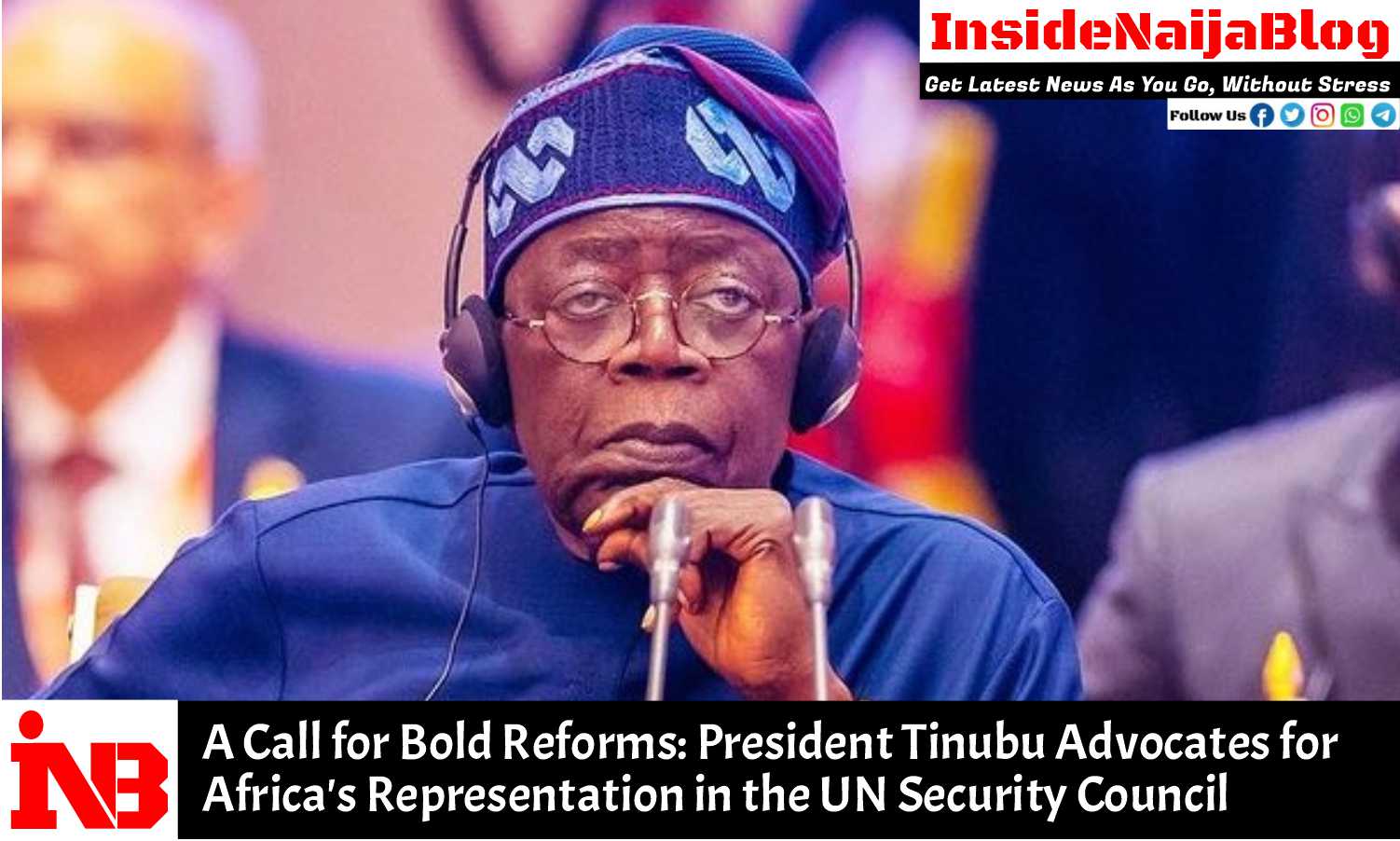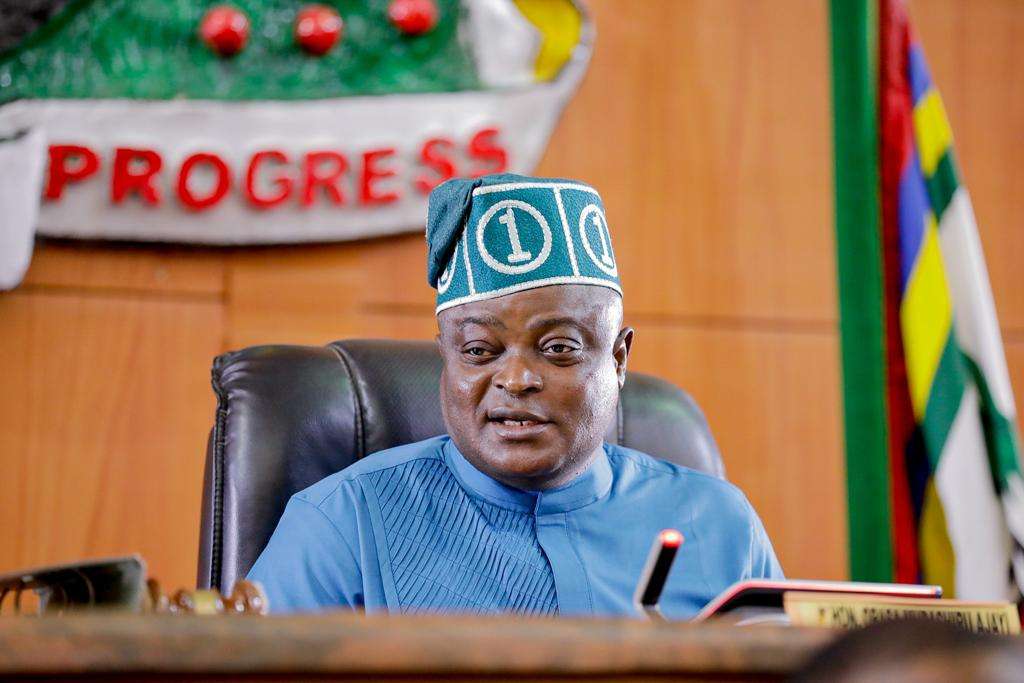During a pivotal address at the 79th Session of the United Nations General Assembly (UNGA) in New York, President Bola Ahmed Tinubu of Nigeria emphasized the urgent need for significant reforms in the UN Security Council. Speaking through his deputy, Vice President Kashim Shettima, Tinubu argued for permanent representation for Nigeria and other African nations, asserting that such inclusion is crucial for the council’s relevance in a rapidly evolving global landscape.
A New Vision for the UN Security Council
President Tinubu articulated that the time has come for the UN Security Council to reflect the diversity and plurality of the world. He welcomed the tentative support from some permanent members for council reform but urged for expedited action. “Africa must be accorded the respect that it deserves in the Security Council,” he declared, stressing that the continent is entitled to a permanent seat, enjoying the same rights and responsibilities as other permanent members.
His remarks underscored a broader call for a more equitable international system, stating, “The Security Council should be expanded, in both permanent and non-permanent member categories, to represent the true mosaic of our world.”
Reforming International Financial Systems
In addition to Security Council reforms, President Tinubu addressed the pressing need to overhaul the international financial architecture. He expressed hope that the adoption of the “Pact for the Future” could fundamentally change economic narratives, particularly for developing and least-developed nations. He advocated for debt forgiveness for Nigeria and other countries burdened by crippling debt, emphasizing that meaningful progress cannot be achieved without comprehensive debt relief measures.
The president stated, “Countries of the global South cannot make meaningful economic progress without special concessions and a review of their current debt burden.” His call for reform extended to issues of transparency in multilateral trading systems, which he believes are essential for sustainable economic development.
The Threat of Nationalism to Global Stability
Tinubu cautioned against the rising tide of nationalism and singularity that he believes undermines global collaboration. He pointed out that the principles of inclusivity, equality, and cooperation—foundational to the UN—are increasingly at risk. He noted that current global challenges, such as terrorism, climate change, and economic inequality, require a collective response rather than isolated national interests.
“The pillars of our organization are threatened,” he asserted, warning that an unwavering commitment to multilateralism is the most effective way to address existential challenges. He lamented the ongoing crises, including poverty and global pandemics, stating that the continued emergence of these issues serves as a testament to the international community’s failures.
A Renewed Commitment to Multilateralism
In reaffirming Nigeria’s commitment to multilateralism, President Tinubu drew from historical roots, recalling Nigeria’s founding vision to engage actively with the UN as it joined as the 99th Member-State. He expressed a desire for nations to deepen relations in line with principles of cooperation and equality, underscoring that this is vital for tackling issues that affect the global community.
The president also expressed concern over the increasing frequency of unconstitutional government changes and military coups in some African nations, illustrating the fragility of democracy when not supported by economic development and lasting peace.
Addressing Insecurity and Climate Change
On the subject of insecurity, President Tinubu emphasized the need for the international community to help restore confidence in democratic governance. He highlighted that the threats posed by terrorism and banditry hinder the establishment of stable societies. He assured attendees that Nigeria is taking proactive measures to combat these challenges, including the upcoming High-Level African Counter-Terrorism Meeting in April 2024, which aims to generate actionable solutions.
Additionally, he warned of climate change as a driver of insecurity, referencing devastating floods in Nigeria. He urged global leaders to honor their commitments made during various COP meetings, emphasizing that neglecting these pledges would only exacerbate the inevitable consequences of climate change.
The Role of the UN in Conflict Prevention
President Tinubu lamented that the UN’s primary role of conflict prevention has become increasingly difficult amid a global landscape where violence and civilian casualties are often normalized. He pointed to root causes of conflict—poverty, hunger, inequality, and injustice—as pressing issues that require urgent attention. He cited ongoing crises in regions like Sudan and Gaza as clear indicators of the international community’s failure to uphold the UN’s foundational principles.
A Call for Global Justice
Ultimately, President Tinubu’s address was a clarion call for global justice and cooperation. He posited that “justice is antithetical to revenge,” urging nations to come together to overcome the divisions that threaten collective progress. His passionate plea for reform, equity, and multilateral collaboration resonated as an urgent reminder of the interconnected challenges facing our world today.
Through this address, President Tinubu not only highlighted the challenges but also presented a vision for a more inclusive and effective United Nations—one that truly represents the voices of all nations, especially those from Africa. His message serves as both an appeal and a challenge for world leaders to reassess their commitments to multilateralism and collective security in an increasingly complex global arena.




